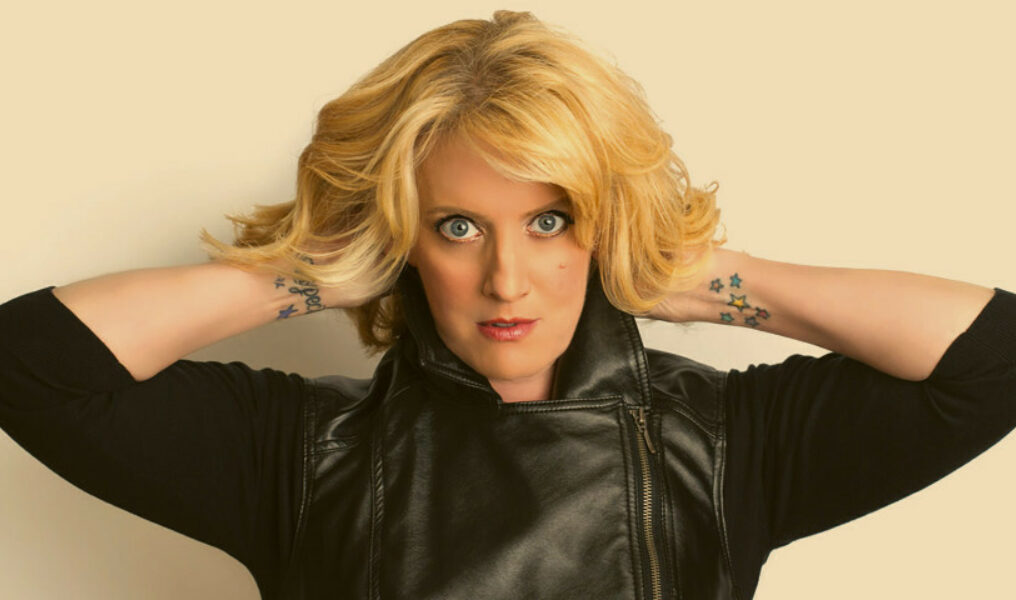ComedyFest Brings Dynamic Lineup to Detroit
Ask a comedian what inspires their comedy, and the answers will range from daily life to aging to their social media accounts. Between The Lines did just that with comedians Suzanne Westenhoefer, Andre Kelley, Pat Regan and Julia Scotti as they were gearing up for Detroit's 22nd annual LGBT ComedyFest.
Whether driving, at work, home or in a crowded NYC cafe, each of the four performers offered a look into not only their comedic styles, but their influences and what they do to keep their acts fresh each night. What follows is a collection of interviews with each of the night's scheduled comedians, both veterans and first-timers.
Suzanne Westenhoefer
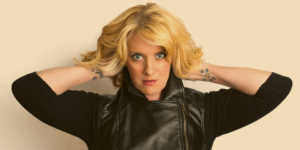
On Being Out: The whole '90s and through 2002, I had someone telling me, "You can't be so lesbian." It just told me that I knew what I was doing was right.
You've been an active comedian since the early '90s and you've always been very bold about the fact that you're a lesbian in your comedic sets, where did that bravery come from?
Back in the '90s, it was a better idea to get fame and then come out. But, I didn't want to do that because I felt like, 'What was the point then?' I was trying to change the world (laughs). That's why I marched in pride, that's why I was in the first AIDs walk. You do those things because you're trying to make a statement, because you're trying to move the world forward, and I was given certain opportunities. But, if they're telling you, 'You need to do A, B, C and D,' then everything I stood for was like, 'What's the fucking point?'
So you did it before it was cool?
Yeah, I'm a gayster (laughs).
Who would you say are your biggest comedic influences?
I would probably say the person I most listened to and who I was moved by was George Carlin.
But you originally wanted to be an actress, right?
I was that kid who was in all the plays in middle school and high school and I wanted to be a big movie star. I didn't want to be "famous for being just famous," I didn't have that desire. I was fortunate enough that I didn't have a mom that said, "No, you can't." She didn't say you could, but she was like, "Well, you have to work really hard to get the things you want." I wasn't beaten down for it, and a lot of kids whose parents are performers, their parents are like, "No, you can't play drums, go to college and do this." I feel like I'm fortunate in that way. It was somewhere in the middle, it gave me the balls to give it a whirl (laugh).
Did you face any challenges being out in the '90s?
The whole '90s and through 2002, I had someone telling me, "You can't be so lesbian." It just told me that I knew what I was doing was right. It just made me say, "This has to change. It can't be like this and it has to be as OK as it is for a girl to go up and talk about her relationship with her partner, the same as it is OK for a guy to get up and talk about his wife." It's what made me realize that it had to happen.
I've now been on the road for like 24 years, doing standup for 27 years, it is still hard to be a girl in comedy, and it's not as big of a deal to be queer or openly gay.
Really?
Yup. And some of the people that are comic icons — some of them are dead — but like Jerry Lewis and Steve Allen, and even in the last years they were alive in the '90s and early 2000s, they were still saying things like, 'Women aren't funny,' or, 'Nobody wants to see a pretty girl be funny.' And, by the way, it's one thing to hear it from some old guy, (but) the truth is, I think that's still a standard way people feel. We've made giant progress, and I feel like we should have (passed that).
So, it's a given that there's still a lot of work to be done?
I think we know this because we have a giant, huge dick for a president, we're now seeing the classist things in our society and the racism is being shown and the work that needs to be done, in such a blinding light now. Like, "Oh my God, these people completely exist! Oh, wait, they're in my family!"
Are you planning anything specific for your Detroit show?
I'm not going to tell you. There are like two, and it's going to be funny. (laughs) That's terrible, but sort of true.
Andre Kelley
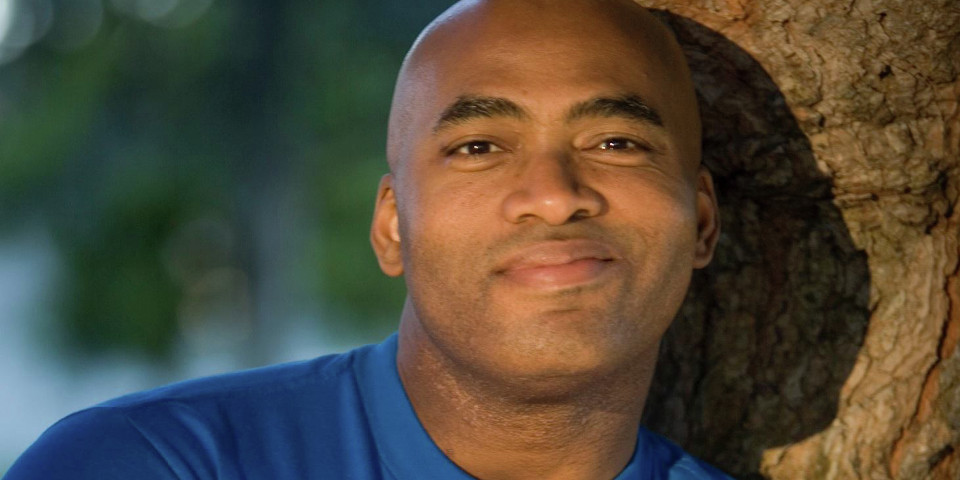
On His Influences: My earliest influences have always been Elayne Boosler, Marsha Warfield, Joan Rivers of course – the goddess – Roseanne Barr and people of that nature.
When did you get your comedic start? You're based out of LA now, are you from there originally?
Oh, God, no. Not that there's anything wrong with this place, but I was born and raised in Kansas and I spent a few years in Kansas City, and a few more years in Chicago and the last 18 in Los Angeles.
I did the travel thing for about two and a half years. I did about 45 states and about 400 cities and colleges, and that's what helped me determine my next move to Chicago. I did seven years there – it sounds like prison – and then made the leap to LA, once I decided which coast was best for me and my career.
So you're not too excited about the cold in Michigan I bet?
I'm from that so I'm used to it (laughs).
Who were some of your earliest comedic influences?
My earliest influences have always been Elayne Boosler, Marsha Warfield, Joan Rivers of course – the goddess – Roseanne Barr and people of that nature. They're just naturally better storytellers for a lot of reasons, and you learn more and you learn to pattern yourself after that kind of stand up. The males came in later of course. I probably jumped in around '87, '86 when I was in college. That's what sparked my interest and it just took off from there.
Were you always out as a comic?
Oh no. (laughs) I say that with love, too. I didn't come out until more or less halfway through what I'm doing. Probably when I got to Chicago in the early '90s and doing the Def Jam scene, which was a big part of Chicago comedy.
I was always out off-stage, but I was never specific on stage. I was like Rosie O'Donnell and Ellen on stage, very matter-of-fact, asexual.
Did coming out make your work better?
Absolutely. Better, stronger and still one of less than five openly gay black male comics in the country. There are literally less than five of us on a statistical level.
And audiences overwhelmingly wanted it as well. By the time I figured where my voice was going, it just centered on me being my strongest, most authentic self, and that's what people tended to respond to and just connected to me offstage.
Do you have any tricks for recovering if you have a bad night?
Everyone has their off nights (laughs). The cool thing about LA is that there's stage time every day of the week, so you're only as good as your last show, and the moment you fall off the horse you get right back on it.
How do you keep your material fresh?
What works for me, I tend to do anything new or observational in the middle of my set. That way, there's always a bit of a challenge there, and it keeps you nervous and sharp. Joan Rivers had this great thing. She said, "You can write all the time, the writing is easy. The hard part is figuring out where it goes in your act."
Is there anything that you're preparing specifically for the Detroit show, or that you're excited about the most?
This is probably my sixth or seventh time I've been there since the '90s and I tend to open for women because they have that nice male/female balance, and I've worked with Suzanne Westenhoefer quite a few times, and I enjoy her immensely because she's just this wonderful, smart, very attractive, supremely likeable thing when she's up on stage. She's just running the whole stage. For her, it's just like breathing, it's like nothing for her, and I learned something watching her all the time. I'm excited I'm going to be working with her.
Julia Scotti
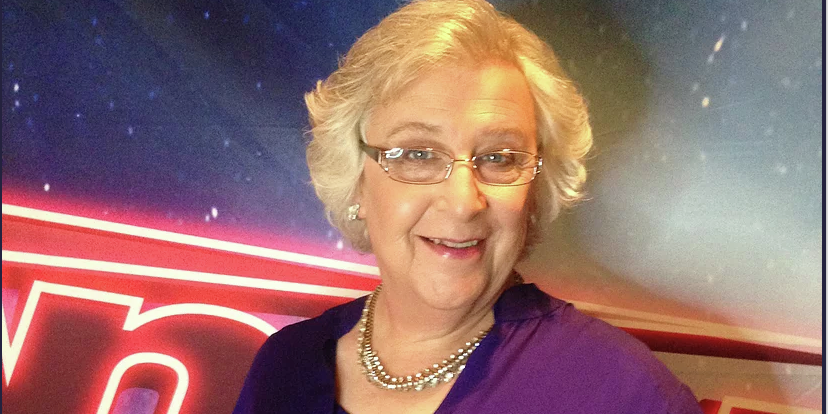
On Handling Audiences: Here's the way I've come to know my audiences: young people sort of like me because I remind them of their grandmother, middle-aged people like me because I remind them of their parents and old people like me because I remind them of them (laughs).
You were a comedian for a long time before taking a 10 year hiatus; why the break?
Yes, since Lincoln was president (laughs). I did, I took 10 years off, I taught sixth grade for seven years and actually became a stock broker for a couple of years.
Actually, when I came back to comedy, it wasn't with the intention of ever doing it as a career again. It was something I loved, because I had done it for so many years, but when I decided to come back, there were two things I absolutely insisted that I do: One was to be totally honest, and the other was to be fearless up there. That meant telling my story on stage, and it was a fearful thing, but I did it. (laughs).
You got very famous soon after coming back to comedy in 2016 when you were on "America's Got Talent," and came out as transgender during your set. What was that like?
Oh my God, it was a life-changing event. I really wasn't sure if I was going to out myself on television, until the very last second when Howie asked me why I was away so long. I was going to say something else, but I said, "Well, I may never get this opportunity again, and it may help a lot of people." So, I did it, and the response was terrific, surprisingly.
Have you faced any backlash since you came out in 2016?
There are some people that don't want to book me because of me being trans, because they think that's all of my act, that's all that I talk about. I do run into the issue of getting paid less than men, which is kind of ironic. Somebody reached out to me for a show and they asked, "Well who do you want to work with?" I said, "Can we have so-and-so comic on to feature because she's good?" And they wrote back, "Well, we don't want to have a two-woman show." I was like, "Wow, it's both a compliment and a slap in the face at the same time."
Were you always drawn to comedy as a kid?
There were two things I was drawn to as a kid. One was comedy and the other was music. I was a drummer for many years before I became a comedian. I never really thought about making a living as a comedian, but this opportunity came up to be in an amateur show. That was all I needed; I went off.
How often do you find yourself writing comedy?
I'm always writing new stuff.
Have your methods changed as a comic since you came out?
When I was Rick Scotti, my style was pretty much developed somewhere between seven and 10 years, and when I came back as Julia I had a lot of rust, and I had to get my muscles back in shape again. So, that took about a year. In terms of my style, it's ever-evolving into something better, I hope.
Do you ever tailor your performance depending on who you are speaking with?
Sometimes. Like the festival we're doing, the things I'm talking about are universal, so I don't really have to adjust much. Here's the way I've come to know my audiences: young people sort of like me because I remind them of their grandmother, middle-aged people like me because I remind them of their parents and old people like me because I remind them of them (laughs).
Is there anything about the upcoming performance that you're most excited about?
I'm very excited it, and I'm really looking forward to it. Really, you guys are my first comedy festival for the LGBTQ community.
Pat Regan
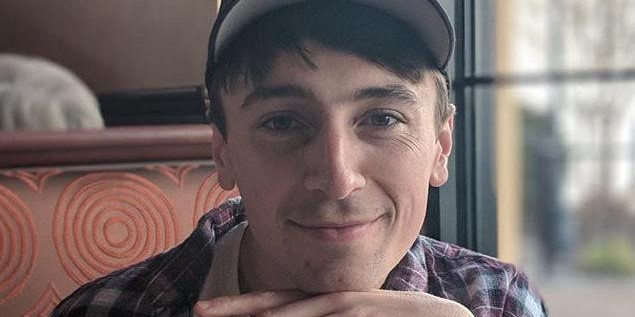
On His Tour: It'll be nice to get different eyes, because I feel so lucky being able to do shows for people all the time, and it's such a good scene, but sometimes you do get the feeling like, "Wait, am I performing for the same 100 people every week?"
Was comedy always what you pictured yourself doing as an adult?
I always felt like I could make people laugh and I always liked that because, especially as a gay kid, it was a defense mechanism. I'm one of six kids and it helped with getting attention and I always liked attention. My family is really supportive, but they're not a super artistic family, so I never thought, "I'm going to be a comedian," I just thought I was funny.
When did you begin performing?
I didn't perform until way later, because it was not in my world. I always secretly wanted to, and after college I was working in an office and I started taking UCB (Upright Citizens Brigade) classes, I started improvising there. I improvised there for years. Standup is a bit more rewarding because you get to do just your stuff, you're alone up there, you really get to laser in on what you think is funny, and I selfishly kind of loved that.
Do you feel like your improvisation experience helps you onstage?
Yeah, definitely. I feel like those tools are always there, and I think I'm less prone to get nervous or intimidated by stages, because for so long I was getting so many performances in and having performances with nothing.
Have you always been out while performing?
I actually wasn't. I didn't come out until I was 25 years old. I think a big part of the reason why I came out was that I was finally at UCB where there were all these really great gay comedians that I looked up to so much. If I came out in high school or college, I would have been the only gay kid at my high school or college, and all that was going to be at a place where that wasn't going to be as big of a thing. But some of the (out) people at UCB were some of the most highly respected people at the theater.
Did coming out impact your performance in any way?
One thousand percent. I think especially because I was improvising. The mental effort it takes to be improvising as a character, but also acting straight as yourself and always giving, like, 20 percent of your mental effort to that little battle, it honestly felt like I had had my hand tied behind my back and suddenly I didn't have to do that anymore.
You're based in New York right now, are you from there originally?
I'm originally from Long Island. All of my friends, both within comedy and outside of comedy are centered here, my family is out on Long Island. For the past 15 months I moved back out to live with my family, specifically because I got sober during that time. And now I'm still there and doing well, and I feel like I want to move back into the actual city.
Have you toured much outside the New York area?
I have largely stuck to New York, I'm just starting to do more road gigs. I did a show in Philly a couple months ago, and that was fun. Now I'm doing this, and we're just trying to book a bunch more. I just signed with a new manager in the beginning of this year and one of our goals is to start more, and because I came from a big family, I love the idea of getting to do my set elsewhere, but Michigan will be the farthest.
Do you think you'll find more inspiration for material through touring?
It'll be nice to get different eyes, because I feel so lucky being able to do shows for people all the time, and it's such a good scene, but sometimes you do get the feeling like, "Wait, am I performing for the same 100 people every week?" It'll be nice to get fresh eyes on it. Even Philly was kind of nice to get out of super New York stuff, but Michigan will be even better and I'm looking forward to seeing how it affects my creative process.
These interviews have been edited for length and clarity. The 22nd Annual LGBT ComedyFest will be held on Saturday, March 3 at 8 p.m. at the Courtyard Detroit-Dearborn at 5200 mercury Drive, Dearborn. Tickets start at $30. More information can be found online at www.comedyfest.org.
For information about each comic, visit:
Suzannew.com
juliascotti.com
patreegs on Instagram, or @poregan on Twitter
facebook.com/andre.kelley.92
